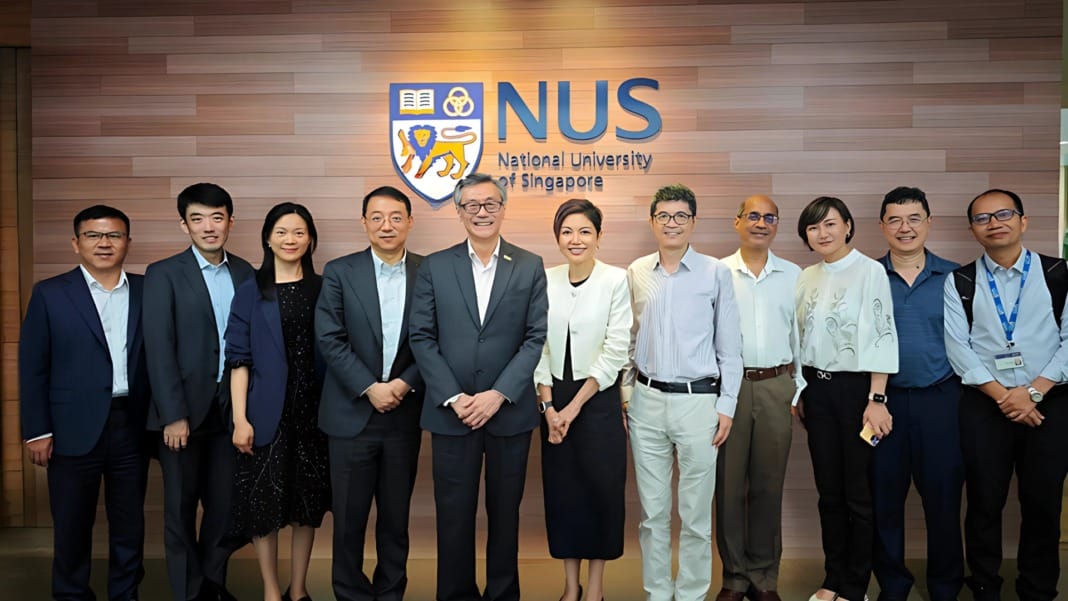The National University of Singapore (NUS) has announced a strategic partnership with Microsoft Research Asia to push forward artificial intelligence (AI) research and nurture future computing talent across Asia. This long-term collaboration aims to strengthen regional capabilities and influence in AI and computing on a global level.
NUS will collaborate with Microsoft Research Asia on a range of AI-focused research areas, including healthcare, societal applications of AI, spatial intelligence, and data-intensive computing. By concentrating on these key sectors, the initiative is expected to accelerate innovation, promote interdisciplinary research, and position Asia as a major contributor to global AI development.
Joint PhD programme to develop future leaders in AI
A central part of the partnership is a five-year research agreement to jointly supervise PhD candidates through a new Joint PhD Supervision Programme. This will combine NUS’ strong academic foundation with Microsoft Research Asia’s technological leadership and experience in industrial applications.
The programme will be delivered through the NUS School of Computing and supported by the Industrial Postgraduate Programme (IPP), backed by the Singapore Economic Development Board (EDB). It will offer students opportunities to work on real-world AI problems under the guidance of leading researchers from both institutions. The goal is to cultivate well-rounded professionals equipped with both theoretical knowledge and practical skills in AI.
Through this collaboration, both parties aim to raise a new generation of tech talent capable of contributing to advanced AI research and accelerating the adoption of AI across various sectors.
Strengthening regional and global research ties
The inaugural NUS-MSRA Academic Symposium took place in January 2025 at the NUS School of Computing. During the event, representatives from both institutions discussed shared goals and outlined areas for future research collaboration.
NUS President Professor Tan Eng Chye said, “In line with Singapore’s AI strategy to accelerate the growth of the digital economy, the collaboration between NUS and Microsoft Research Asia will strengthen local AI capabilities and create meaningful impact for society and industries. As a leader in AI research and innovation, Microsoft Research Asia has a strong track record of pioneering breakthroughs and fostering deep academic collaborations. By joining forces with Microsoft Research Asia, we hope to drive cutting-edge advancements, translate research into real-world applications, and nurture AI talent with a global perspective.”
Dr Lidong Zhou, Corporate Vice President and Managing Director of Microsoft Research Asia, also commented, “Microsoft Research Asia is committed to driving technological innovation through cutting-edge open research and establishing long-term collaboration with leading academic institutions worldwide. Asia is a key global hub for AI innovation with a robust research ecosystem, strong industrial foundation, and international outlook. NUS, as one of the most influential academic institutions in Asia and beyond, has been our longstanding partner. We believe this collaboration will significantly advance AI technology and its applications and contribute to the global AI ecosystem.”
Mr Jermaine Loy, Managing Director of the Singapore Economic Development Board, said, “Talent development is central to Singapore’s vision to become a globally leading AI innovation hub. This collaboration between NUS and Microsoft Research Asia will offer our local students the opportunity to advance the development of frontier AI technology in Singapore under the mentorship of world-class researchers. At the same time, by fostering interdisciplinary expertise and industry-academia collaboration, this initiative will further strengthen Singapore’s AI talent pipeline and enhance the competitiveness of our companies and industries here.”
This partnership adds to NUS’ broader commitment to developing AI and computing capabilities in Singapore and the region. By aligning academic excellence with industry needs, the collaboration seeks to bridge the gap between research and real-world application while strengthening Asia’s presence in the global AI research landscape.





